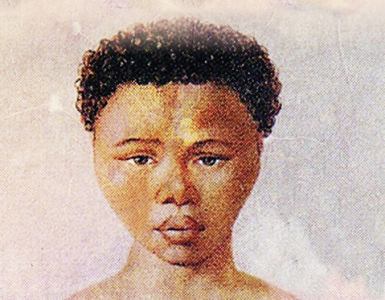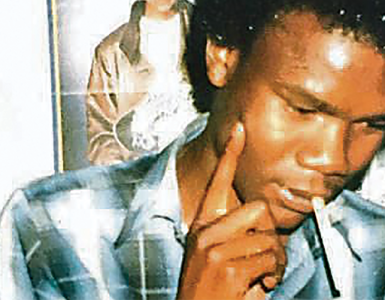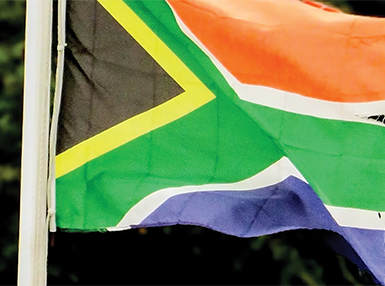SIEGE: After a year of unrelenting Israeli attacks, health workers in the war-torn strip remain resolute, refusing to abandon their patients…
By Ana Vracar
After a year of relentless bombardment, Gaza’s healthcare system lies in ruins, and the warnings Palestinians have issued for decades are being confirmed: hospitals, clinics, and health workers are deliberate targets of Israeli Occupation Forces (IOF).
What was once a systematic campaign against healthcare has escalated into an all-out assault, resulting in the decimation of most of the infrastructure. As the one-year anniversary of this ongoing genocide approached, Israeli forces continued their siege on northern Gaza, intensifying their attacks on health facilities.
Three hospitals still barely functioning in the area — including Al-Awda and Kamal Adwan — were just issued so-called “evacuation orders,” which, as pointed out by Medical Aid for Palestinians (MAP), are nothing short of forced removal orders. Kamal Adwan’s director, Hussam Abu Safiya, stressed the impossible position the hospital faced soon after the orders were issued. With critically injured children in their care, no means to safely evacuate them, and no other facility able to accept them, health staff are faced with the excruciating decision of either abandoning their patients or staying at the risk of their own lives.
“In between the constant bombardment occurring on the hospital and the surrounding buildings, the healthcare staff have become terrorised to a point where they are struggling to do their jobs,” Abu Safiya stated. Their situation is similar to that faced in other health facilities. Around the same time Abu Safiya recorded his statement, medics in Al-Awda were also issued forced removal orders—for the third time in a year—says Matilde De Cooman from Viva Salud, a Belgian organization partnering with the hospital.
The risks health workers face are all too real. Israeli forces have systematically besieged and destroyed healthcare infrastructure over the past 12 months, including Gaza’s largest hospitals, such as Al-Shifa. Under the pretext of searching for resistance fighters, the IOF raided operating rooms, destroyed medical equipment, and abducted patients and medical staff.
In the aftermath of the attacks, civil defence teams discovered seven mass graves containing 520 bodies on hospital grounds.
Over 1 000 health workers have been killed since the genocide began, with hundreds more kidnapped and held in Israeli concentration camps. Those who have been released share harrowing accounts of torture: shackles, electric shocks, broken limbs, and sexual violence. Families of those still missing, like Dr Ahmed Muhanna, the director of Al-Awda Hospital in northern Gaza, are not granted any official information about prisoners’ conditions. Muhanna was abducted in December 2023. Since then, no official word has emerged about his mental or physical condition, says De Cooman.
International campaigns to secure the release of Dr Muhanna and other abducted health workers are ongoing, though disturbing reports of their treatment in Israeli camps have sparked both outrage and fear about what the future holds.
Despite these developments, Gaza’s health workers remain resolute, refusing to abandon their patients. Their unwavering commitment, sumud (steadfastness), has been lauded by global health workers since the beginning of the genocide. Operating without pay or essential supplies due to the blockade, they have continued their work tirelessly since last October.
“Even with Dr Muhanna’s fate in mind, Al-Awda’s operating director, Mohammed Salha, never once considered abandoning the hospital,” says De Cooman. “As long as there is even one person left in the area, the hospital will remain open and stand by its people.”
The health suffering in Gaza extends far beyond the hospitals. With more than two million people pushed into poverty by the attacks and the aid blockade, food and clean water are scarce. Recent reports reveal that 35 percent of children and 40 percent of pregnant or breastfeeding women in Gaza are surviving on just one type of food.
Malnutrition is rampant, and the World Health Organization (WHO) has documented cases of children starving to death as humanitarian aid convoys are blocked at Israeli-controlled checkpoints.
Hunger and disease go hand-in-hand, as the WHO continues to repeat. Gaza is witnessing a hard-to-imagine surge in infectious diseases—respiratory infections, skin diseases, Hepatitis A, and even polio, a virus that had been eradicated decades ago but resurfaced, paralysing a 10-month-old child. The shortage of basic hygiene products, such as soap and clean water, only adds to the crisis.
The spread of diseases is anything but collateral damage: it is a calculated weapon in Israel’s strategy. As Jewish Voice for Peace remarked, in prisons, “skin diseases are a method of punishment. Prison authorities are allowing scabies to spread by restricting Palestinian inmates’ water supply and depriving them of clean clothes and medical care.”
On top of it all, Gaza’s whole environment is contaminated with asbestos dust raised by the constant bombardment. An estimated 800 000 tonnes of debris in Gaza could contain asbestos particles, as reported by Al Jazeera, raising the prospect of soaring cancer rates in the coming years.
“After a year, the occupying forces continue to practice an unprecedented genocide in modern history. What is particularly painful is the disgusting silence of the international community,” stated Hani Serag, Co-Chair of the People’s Health Movement.
“We hope that activists across the world will continue expressing their solidarity to Palestinian people and refuse the barbaric practices of the occupying forces.”
Israeli crimes against healthcare are not confined to Gaza. In less than a month, Israeli forces have killed over 100 health workers in Lebanon and forced the closure of dozens of health centres. The destruction unfolding in Gaza serves as a blueprint for the invasion of Lebanon, raising the question: how long will the West look away while Israel continues its rampage? – People’s Despatch
Comment
LET US HONOUR OUR FREEDOM FIGHTERS
The recent return of the remains of South Africa’s freedom fighters who passed on while in exile in Zambia and Zimbabwe, should be hailed as a historic and momentous moment, thanks to the Government of National Unity which completed the process that was started by the ANC after the ushering of a new dispensation in this country thirty years ago.
These forty-two heroes and heroines are part of hundreds of others who fled the country that was governed by a WHITE minority regime whose main objective it was to brutally suppress the fundamental rights of Black people through the apartheid system, which was later declared a crime against humanity by the United Nations.
United by a common vision of liberating their people, these freedom fighters were forced to flee their country of birth to join the military structures of the ANC and PAC in an effort to overthrow a government that refused to involve the Black majority population in the decision-making processes of this country.
Hundreds of those who fled the country, who included young students, paid a heavy prize when they were arrested and killed by apartheid security forces when they came back into the country to carry out the activities of the ANC and PAC’s military wings of Umkhonto we Sizwe (MK) and Azanian People’s Liberation Army (APLA). Many of those who were arrested were sentenced to hefty jail terms. Others were sentenced to death and were executed at the Pretoria Central Prison. Others, including the late South African icon, Nelson Mandela, were jailed for life – for speaking out against injustice.
At a ceremony to welcome the return of the remains of the 42 freedom fighters about two weeks ago, President Cyril Ramaphosa said their remains had now been returned to a free and democratic South Africa. It was regrettable that these heroes and heroines of our struggle had not lived to see the dawn of the freedom to which they had dedicated their lives for so long.
To many South Africans, especially those who were not yet born or were too young during the days of the draconian laws that denied Black people all the fundamental rights every human being was to enjoy, the remains of these freedom fighters might not mean much. For those who endured the yoke of suppression under the apartheid rule, these heroes and heroines played a major role in the fight and demise of apartheid in this country. The government should be lauded for their efforts in bringing their remains to the country of their birth where we believe – as is our traditional custom- that their souls would rest in peace. The authorities are urged to continue to investigate and bring home the remains of other freedom fighters who perished outside South Africa while on duty fighting for freedom in this country.
They should forever be remembered because their blood have indeed nourished the tree of our liberty.
































